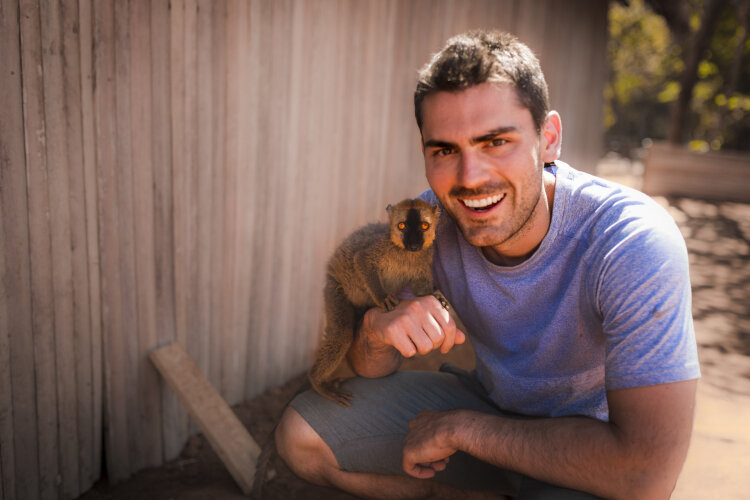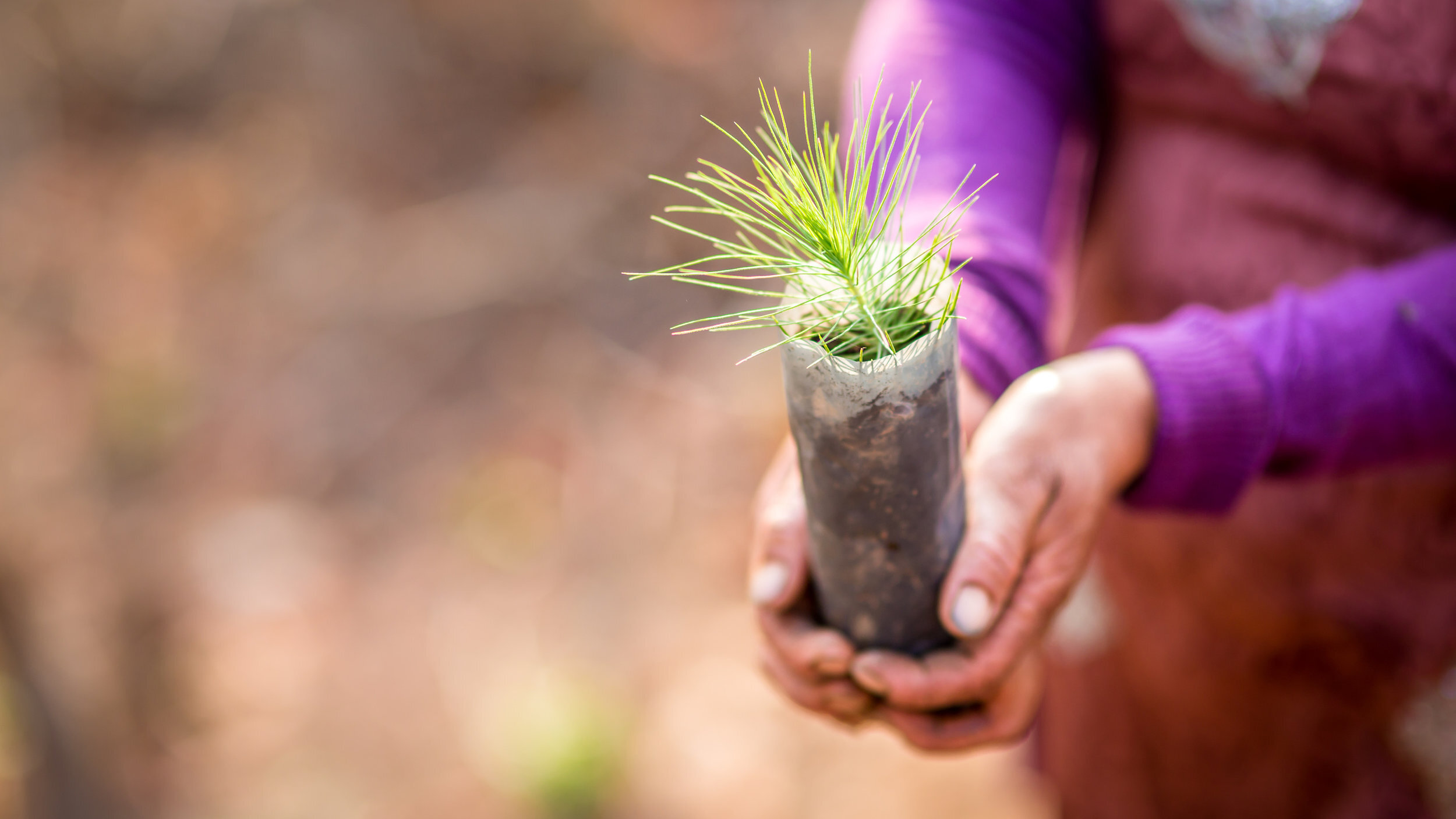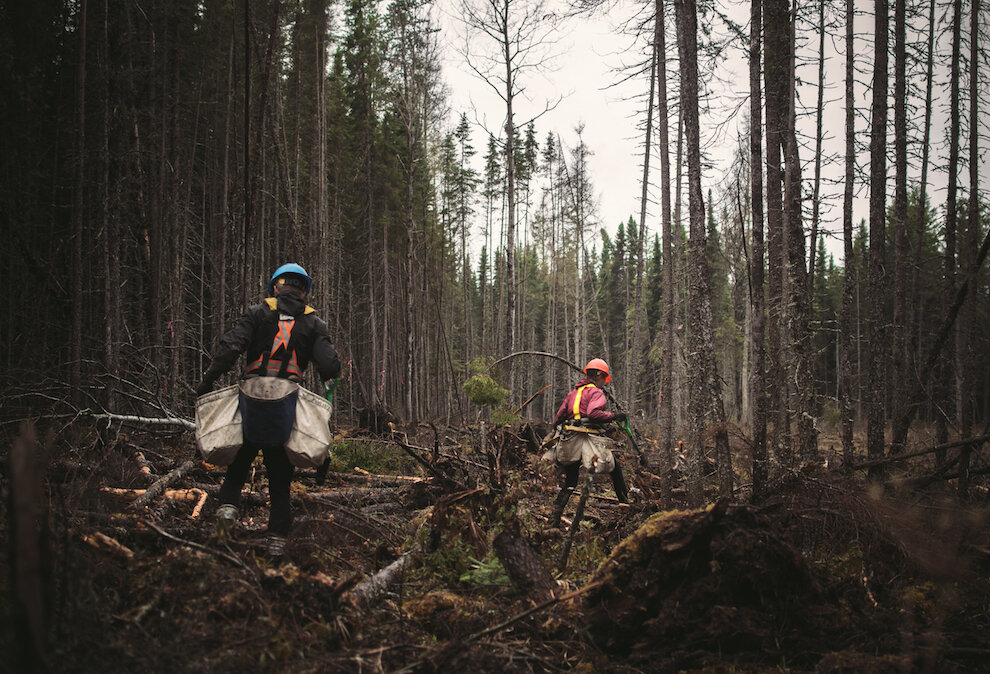
Lessons From Planting 15 Million Trees: Interview With Derrick Emsley, Co-Founder Of tentree
Meet Derrick Emsley, Co-Founder & CEO Of tentree
More and more people are seeking to support brands that truly help them express themselves – not only in what they wear, but in what they stand for. Since 2012, the lifestyle and apparel brand tentree has been delivering sustainably and ethically-made clothing with a greater impact: for each item purchased, ten trees are planted in communities around the world.
This year, tentree reached the momentous milestone of planting 15 million trees globally, in places like Madagascar, Nepal, Senegal, Haiti, Canada, and the United States. These trees not only bring environmental benefits, but also help build local economies through employment, farmland protection, and food availability. We’re excited and endlessly inspired by the work tentree is doing, starting with responsible production and labor practices and extending all the way past the planting of each tree through ongoing partnerships and employment in nearby communities.
We were thrilled to speak with Derrick Emsley, co-founder and CEO of tentree, about this milestone, about the impact of ten trees, and about how brands and individuals alike can affect change in the world around them.
Congratulations on planting over 15 million trees in tentree’s first five years of business! How have you met (and exceeded!) your initial vision for the brand, and where are you looking to go next?
We started tentree with the goal of planting as many trees as possible but originally, we were just happy when we were able to plant 100, 1,000, 10,000. To have been able to plant over 15 million feels pretty surreal. Our goal is to reach one billion trees planted by 2030.
What inspired you to create an apparel brand versus a different type of organization (like a non-profit)?
We personally believe in the power of social enterprise to solve today’s issues. As a company, if we are able to provide a product or service that consumers value, and we then tie a meaningful social program to that product, I believe that will be more effective in the long run than asking for donations and handouts.
“People want to wear a product that communicates something about themselves.”
When it comes to why we chose apparel, really it started because it was an easy medium for us to get the message out there. It’s developed into much more. People want to wear a product that communicates something about themselves. When someone wears a tentree shirt, they are communicating that they care about the environment and want to do good.
tentree currently plants trees in Madagascar, Nepal, Senegal, Haiti, Canada, and the United States. What is the environmental impact of ten trees in these locations?
The impact is truly incredible. In Madagascar it’s about providing jobs and replanting the mangrove channels where the local fish spawn. This is helping to bring back the fishing and supporting entire ecosystems. With our partners, we are fortunate enough to employ as many as 300 people in the high planting times.
In Senegal, we’re focused on working with farmers and teaching them how to plant medicinal and fruit trees – moringa, mango, papaya, guava, etc. – in order to pull themselves out of poverty caused by unsustainable peanut farming. We’re currently working with over 200 farmers.
Nepal and Haiti are both different still. In Nepal we have a site at the Chilean national park planting in the buffer zone in order to protect the park and wildlife. We also work on an employ-to-plant project in the mountains that is focused on a number of things but, chief among them, is soil stabilization. This project is very similar to Haiti, except in Haiti we plant fruit bearing trees as well, like avocado.
Canada and USA tends to be more project-based. We focus on key projects that we can have a meaningful impact on and that weren’t federally mandated to be reforested with or without us.
On top of the essential environmental work these trees are doing, they are also helping to create social change in the communities you plant them in. Can you tell us more about that?
The impact of these trees extends far beyond the environment. The key social initiatives from the trees planted are:
Employment
Health (moringa trees are medicinal, fruit trees provide better nutritional options, etc.)
Community – tree planting fosters a sense of community and ownership for the land and trees that wasn’t there before. Communities work together to protect the trees.
Independence – we’re not looking to foster dependence through these projects. We’re trying to teach the locals how they can build these projects, maintain them, and grow them.
Education – perhaps the most important, our tree planting efforts support education initiatives in the area to explain to these communities how deforestation has led to poverty, lack of jobs, poor fishing, etc. This helps to ensure people don’t find themselves in the same situation.
Ultimately, we view tree planting as not a hand out, but a hand up. We wanted to create something that was focused on the old adage of “give someone a fish and they eat for a day, teach someone to fish and they eat for the rest of their lives”.
How do you ensure that you are making a lasting impact once the trees have been planted?
The effect of each and every tree will be felt for generations to come. We achieve this by:
Fostering a sense of community around the planting so that the locals are engaged in not only the planting but also the protection.
Educating locals on how deforestation has played a role in the negative situation they are in today so that they don’t cut the trees down again.
The impact of the tree planting stimulates other industry (ie. increasing fishing yields in Madagascar by replanting trees that serve as fish habitats)
It comes down to these projects having a visible measurable impact and then providing the locals with the tools to continue these projects after we’re gone.
Creating and maintaining a sustainable apparel brand in today’s world can be incredibly difficult. What has made tentree so successful, and what have been your greatest struggles?
The biggest challenge we faced when we started tentree was that we didn’t know much about apparel. Rather, we were tree planters, and apparel was just our mechanism to plant more trees.
That said, our apparel and approach to sustainability has evolved in a major way since we founded tentree. Now, we use organic cotton, recycled polyester, tencel, and more. We use coconut buttons instead of plastic and cork trims instead of leather. We partner with factories that pay fair wages and meet our ethical requirements. Every day we’re working to improve our supply chain and shrink our footprint to create an even more sustainable brand.
“Every day we’re working to improve our supply chain and shrink our footprint to create an even more sustainable brand.”
What advice do you have for someone who is looking to make a more positive impact in the world around them?
Be authentic to who you are. There isn’t an immediate connection between tree planting and apparel. We were tree planters first and apparel provided us the means to do more. Choose an impact that makes sense to your brand and that you can stand behind long term.
Care about the details. We wouldn’t be where we are today if all we cared about was tree planting. We have to be true to the brand and create ethical, sustainable product that matches our purpose.
Focus on a lasting impact. Do something that makes a sustainable, long-term impact.
Lastly, tell a story. People want to invest in products that they can feel good about. Social and environmental companies have stories to tell and consumers want to hear them!
“Be authentic to who you are… Choose an impact that makes sense to your brand and that you can stand behind long term.”









